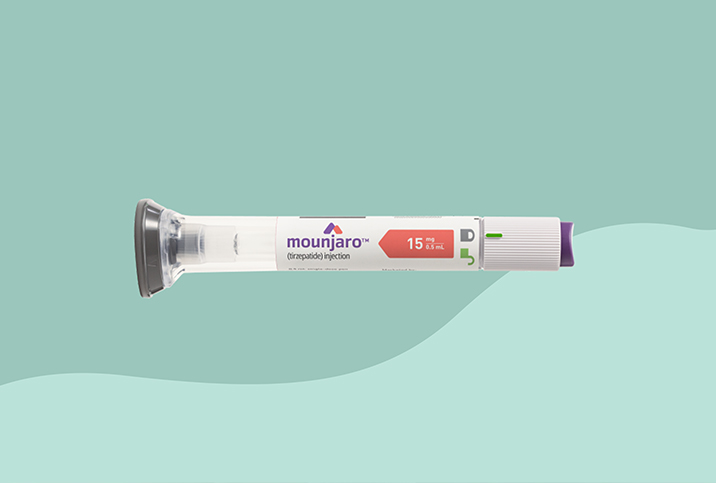Could Your Morning Coffee Reduce Your Risk of Type 2 Diabetes?

Key Points
- Caffeine may help to raise metabolism and reduce fat storage.
- Excess body fat can interfere with hormone levels and contribute to high glucose levels and an increased risk of type 2 diabetes, cardiovascular disease and other ailments.
- Research suggests people with higher levels of caffeine in their blood tend to have less body fat and a lower risk of type 2 diabetes.
Are there benefits to that morning coffee? It may have a few surprising health benefits. Drinking coffee could help to reduce body fat percentage and the risk of type 2 diabetes.
Coffee and Science: What's the real deal?
Habitual coffee drinkers tend to have lower body fat percentages and decreased risk of type 2 diabetes and cardiovascular disease, among other ailments, shared a 2014 report.
One meta-analysis of 45,335 people found people who drank one cup of coffee daily were eight percent less likely to develop type 2 diabetes compared to non-drinkers. Those who drank six cups daily cut their risk by 33 percent, indicated the 2014 study.
Another meta-analysis of 30 studies found that for each additional cup of decaf and regular coffee consumed, diabetes risk decreased by six and seven percent, respectively, suggested a 2018 report.
However, according to the latest study's authors, most prior research was observational and couldn't prove cause and effect. Additionally, it was not made clear from the study how much of coffee's benefits were derived from caffeine versus coffee plant components.
The new report is the first to indicate a causal link between caffeine, body composition and disease risk.
Is coffee good for you in the morning?
Calorie-free caffeinated beverages may help reduce body fat percentage and type 2 diabetes risk, indicated the 2023 study published in the journal BMJ Medicine.
For the study, researchers used Mendelian randomization, which shows how genetic variations can contribute to specific health outcomes. They investigated the link between genetics, blood caffeine levels, body mass index (BMI) and type 2 diabetes in about 10,000 participants.
Researchers identified two genetic variations involved in caffeine metabolism and used these to predict people's blood caffeine levels and determine if these levels were associated with body fat percentage.
People genetically predisposed to metabolize caffeine slowly tended to consume less but had more caffeine circulating in their blood compared to those who metabolized quickly.
They also found that those with higher blood caffeine levels generally had lower body mass indexes and less likelihood of developing type 2 diabetes. Researchers determined weight loss was about 50 percent responsible for cutting type 2 diabetes risk.
However, the authors of the report stressed that more research is needed.
This study doesn't evaluate the other effects of drinking more coffee or suggest people should do so. Additionally, the study has its limitations, including that most participants were of European ancestry.
"While this research is enlightening, it does not imply that people should significantly increase their caffeine consumption," said Kevin Huffman, D.O., a bariatric surgeon and CEO and founder of AmBari Nutrition based in Vermilion, Ohio.
"Instead, these findings lay the groundwork for future investigations, including randomized controlled trials, to delve deeper into the role of caffeine in preventing obesity and diabetes," Huffman said.
Recommended
- Coffee and Sex—What Are the Effects of Caffeine on Libido?: Coffee may improve energy and stamina in the short term, but too much could diminish bedroom performance.
- Your Morning Cup of Joe May Suppress Prostate Cancer: Compounds in coffee, such as antioxidants, could have protective effects against cancer and other diseases.
- How Weight Loss Can Treat Your Diabetes and ED: Being overweight can take a toll on your overall well-being, but losing weight can help you restore your health and sexual vitality.
What's the connection between excess body fat and high glucose levels?
"Excessive fat tissue can make the body less responsive to insulin, a hormone that helps regulate blood sugar (glucose) levels," said Amy Lee, M.D., chief medical officer at Lindor Clinic, a weight management and metabolic health company with locations throughout Southern California.
Reduced insulin sensitivity can lead to high glucose levels, a hallmark of diabetes. Moreover, excessive weight can interfere with other hormones, such as estrogen and testosterone. Low T or excessive estrogen may exacerbate insulin resistance.
"Men and women with higher-than-average body fat percentages are also at higher risk of sexual dysfunction," Huffman said.
Men with metabolic syndrome—a collection of disorders that raise the risk of cardiovascular disease and diabetes, among other serious conditions—often experience low libido and erectile dysfunction or the inability to achieve and maintain an erection satisfactory for sex.
In women, type 2 diabetes and other hormonal imbalances associated with excess fat tissue may diminish libido, sensitivity and orgasm.
How does caffeine increase fat burning and metabolism?
According to the study, caffeine is a stimulant that can boost metabolism and fat-burning while reducing appetite. People who drink 100 mg daily are thought to burn an extra 100 calories each day on average.
A typical 8-ounce cup of brewed coffee contains about 96 mg of caffeine, according to the Mayo Clinic.
"Caffeine increases stress hormones cortisol and adrenaline that we would need in times of extreme stress, like running away from a tiger or paying rent. When those hormone levels increase, the body has no interest in eating since it's in quick survival mode," said Yelena Wheeler, R.D., M.P.H., a registered dietitian nutritionist in Los Angeles.
"Therefore, appetite is suppressed. Additionally, high adrenaline tells the body to start breaking down fat cells into smaller particles called fatty acids, which then move into the muscles to be utilized as energy," Wheeler said.
She added that the antioxidants in coffee—decaf or regular—may also positively affect the liver and pancreas by improving fat oxidation and preserving beta cells, which make insulin.
Research indicates this may reduce the risk of type 2 diabetes and nonalcoholic fatty liver disease, among other ailments.
Should you drink more caffeine to lose weight?
Caffeine may help some folks to manage their weight and prevent chronically high blood glucose levels. But it doesn't work for everyone and is no substitute for a healthy diet and lifestyle.
"While caffeine does have thermogenic effects and has been associated with short-term weight and fat reduction, it is not a miracle solution for losing weight," Huffman said. "It is not advisable to recommend increasing caffeine intake as a means of shedding pounds."
It should be noted that excess caffeine can have adverse side effects, including insomnia, elevated heart rate and anxiety, he added.
"People who have heart conditions, anxiety disorders, or insomnia may need to steer clear," Lee said.
"Additionally, appetite suppression isn't a viable path to weight loss," Wheeler said. "Instead of restricting, it's better to incorporate more nutritious, high-fiber foods–such as leafy greens–that can help you feel full for longer while delivering essential nutrients."
Research suggests lean proteins, including tofu, beans and legumes, fish, eggs, chicken and no-sugar-added Greek yogurt can provide similar benefits while supporting muscle growth, among other functions.
"Mindful eating and healthy and frequent food combinations coupled with exercise will produce more sustainable results," she said.
How can you increase the health benefits of caffeine?
"If you decide to incorporate caffeine into your weight management plan, be careful not to exceed 400 mg daily," Wheeler said.
How many cups of coffee is 400 mg?
That 400 mg a day is the recommended limit for most adults according to the U.S. Food and Drug Administration (FDA), or equivalent to about four cups of brewed coffee.
"It's also important to limit or exclude ingredients high in calories, sugar or fat that can cancel out caffeine's potential benefits," Lee said. "Instead of adding cream, sugar, syrup, butter or full-fat milk, use skim milk, a no-sugar-added plant-based milk alternative or Stevia."
According to research, adding cinnamon, maca, turmeric or unsweetened cocoa powder may enhance flavor and health benefits.
"Just be sure to consult with your doctor first, as some of these may interfere with certain medications," Wheeler said.
The bottom line
Caffeinated beverages can be part of a healthy obesity self-care and disease prevention plan, both Lee and Huffman said.
Eat nutrient-rich foods and satisfy the need for physical activity and personalized medical guidance. Before incorporating more coffee into your daily routine, talk to your healthcare provider to ensure it's safe.


















